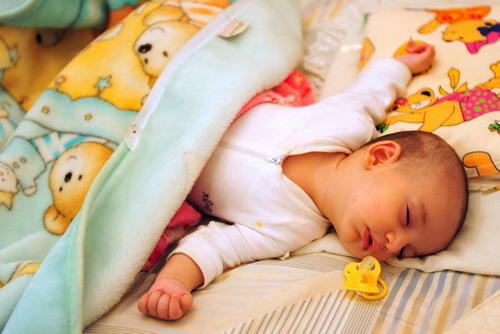
Issues with sleeping are becoming a common problem, this report from the Beijinger highlights the global nature of the problem. Read on for some advice for parents from the University of Michigan:
DO:
Make bedtime a special time. It should be a time for you to interact with your child in a way that is secure and loving, yet firm. At bedtime, spend some special time with your child. Be firm and go through a certain bedtime routine that your child is used to. At the end of that routine the lights go off and it is time to fall asleep.
Put some thought into finding your child’s ideal bedtime. In the evening, look for the time when your child really is starting to slow down and getting physically tired. That’s the time that they should be going to sleep, so get their bedtime routine done and get them into bed before that time. If you wait beyond that time, then your child tends to get a second wind. At that point they will become more difficult to handle, and will have a harder time falling asleep.
Keep to a regular daily routine—the same waking time, meal times, nap time and play times will help your baby to feel secure and comfortable, and help with a smooth bedtime. Babies and children like to know what to expect.
Use a simple, regular bedtime routine. It should not last too long and should take place primarily in the room where the child will sleep. It may include a few simple, quiet activities, such as a light snack, bath, cuddling, saying goodnight, and a story or lullaby. The kinds of activities in the routine will depend on the child’s age.
Make sure the sleep routines you use can be used anywhere, so you can help your baby get to sleep wherever you may be.
Some babies are soothed by the sound of a vaporizer or fan running. This "white noise" not only blocks out the distraction of other sounds, it also simulates the sounds babies hear in the womb. Small, portable white noise machines with a variety of different sounds are now available.
Make sure your kids have interesting and varied activities during the day, including physical activity and fresh air.
Use light to your advantage. Keep lights dim in the evening as bedtime approaches. In the morning, get your child into bright light, and, if possible, take them outside. Light helps signal the brain into the right sleep-wake cycle.DON’T:
Never soothe your child to sleep by putting them to bed with a bottle of juice, milk or formula. Water is okay. Anything other than water in the bottle can cause baby bottle tooth decay. Feed or nurse your baby, and then put them down to sleep.
Don’t start giving solids before about 6 months of age. Starting solid food sooner will not help your baby sleep though the night. In fact, if you give your baby solids before their system can digest them, they may sleep worse because they have a tummy ache! The American Academy of Pediatrics says that breast milk or formula is all a baby needs to eat until six months of age. (See Feeding Your Baby and Toddler on YourChild for more on starting solids.) Contrary to popular belief, a heavier baby or a baby with a stuffed-full tummy is not more likely to sleep through the night.
Don’t fill up your child’s bed with toys. It’s probably best to keep your child’s bed a place to sleep, rather than a place to play. Too many toys in the bed can be distracting. One or two transitional objects–like a favorite doll, a security blanket, or a special book–are okay, and can help with separation issues. Babies under 4-6 months should have an empty crib to prevent suffocation. (See YourChild: Safe Sleep for more on bedtime safety guidelines.)
Never use sending your child to bed as a threat. Bedtime needs to be a secure, loving time, not a punishment. Your goal is to teach your kids that bedtime is enjoyable, just as it is for us adults. If the feeling around bedtime is a good feeling, your child will fall asleep easier.
Don’t give your child foods and drinks with caffeine in them, like hot chocolate, tea, cola, chocolate, etc. Even caffeine earlier in the day could disrupt your child’s sleep cycle.
Don’t let your child watch more than one to two hours of TV during the day, and don’t let them watch TV at bedtime at all. TV viewing at bedtime has been linked to poor sleep.
If your child has a TV set in their bedroom, remove it. Research shows watching TV is linked to sleep problems , especially if the TV set is in the child’s bedroom. The presence of other media, such as a computer, video games or Internet in a kid’s bedroom is also associated with worse sleep.
For more information visit the University of Michigan website.
Photo courtesy of Hamed Saber



